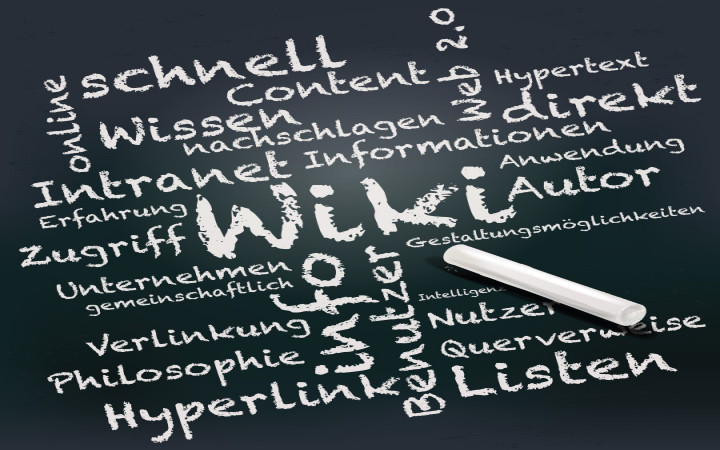Do you take today's technology for granted? When you have to help your parents and relatives with technology issues, just remember that they grew up in a world quite different from the world you live in today.
When they wrote a research paper, they first had to go to the library. They had to seek out information from within the pages of encyclopedias that often took up multiple shelves to house their two dozen or more hardbound volumes.
Today, you probably start out by firing up your computer and heading straight to a search engine on the Internet. If you don't know anything about a topic, you might seek an overview article on one of the Internet's most popular sites: Wikipedia.
Wikipedia is our modern version of the old paper encyclopedia. Its name reflects that it's a combination of old (pedia) and new (wiki) technology. But what exactly is a wiki?
At its most basic level, a wiki is a website that allows users to contribute and modify its content collaboratively within a web browser using wiki software, known as a wiki engine. The very first wiki, WikiWikiWeb, was developed by Ward Cunningham in 1995.
Cunningham described his creation as "the simplest online database that could possibly work." He named it a wiki after a Hawaiian word meaning "quick."
In addition to allowing users to create and edit site content via any web browser, wiki software also allows users to reorganize content and cross-reference related content quickly. Wikis soon became popular, as Internet users realized the benefits of sharing information and collaboration on new projects in an open environment that can change and grow to meet the needs of its users.
Today, there are tens of thousands of wikis in use around the world. Their purposes are as varied as their users. The most popular wiki by far is Wikipedia, the online encyclopedia project that has become one of the top ten websites on the Internet.
Not all Internet users are fans of wikis, though. For some, the openness and simplicity of wikis is seen as a weakness. Wiki opponents argue that the information contained within a wiki can be unreliable, since anyone can edit it to reflect their own personal beliefs or biases.
Wiki proponents, on the other hand, believe that the simplicity and openness of wikis encourage everyone to contribute the information they have, thereby creating a richer body of content than would otherwise be possible. They think that unreliable information will quickly be eliminated by wiki users who recognize such content for what it is and remove it.
Moreover, many wikis include safeguards that prevent users from purposely vandalizing or corrupting content. Most wikis contain tools that allow community users to see what changes are being made. This feature allows users to respond quickly to new information to make sure that it's not unreliable or inaccurate.
If you're writing a research paper, your teacher may warn you against relying on Wikipedia — or any wiki — as your sole source of information. While it may seem like your teacher is anti-wiki, it's really just good advice to make sure you're relying on multiple, reliable sources to ensure you base your research paper on quality information.





